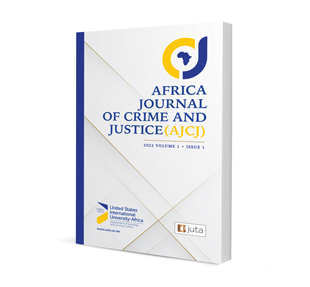Abstract
Die belangrikheid van internasionale handel vir die ekonomiese ontwikkeling van Suid-Afrika kan nie oorbeklemtoon word nie. Dit is daarom noodsaaklik dat daar ’n robuuste regsraamwerk vir die erkenning en afdwinging van buitelandse vonnisse is wat die beste van internasionale praktyke weerspieël. Die onlangse uitbreiding van die BRICS ekonomiese blok, bestaande uit Brasilië, Rusland, Indië, China en Suid-Afrika, en die vooruitsig van selfs verdere uitbreiding, sal hopelik lei tot ’n toename in handelstransaksies binne die blok. Dit moet onvermydelik lei tot ’n toename in litigasie. Dit sal die erkenning en afdwinging van buitelandse vonnisse ’n uitermate belangrike onderwerp maak. Die onlangse innoverende wetgewende ontwikkelings deur die Haagse Konferensie en die Statebondsekretariaat oor die erkenning en afdwinging van buitelandse vonnisse behoort ook as ’n katalisator te dien vir die hervorming van die Suid-Afrikaanse regsraamwerk in hierdie verband om dit in ooreenstemming te bring met huidige internasionale praktyke, sowel as om regsekerheid te bevorder. Die onderhawige artikel bespreek die regsraamwerk vir die erkenning en afdwinging van buitelandse vonnisse in Suid-Afrika vanuit die perspektief van die gemenereg en die statutêre instrumente. Die bespreking toon dat daar ’n behoefte is aan hervorming van die Wet op die Beskerming van Ondernemings: die volledige herroeping daarvan sal voordelig wees vir potensiële vonnisskuldeisers en dit sal ook internasionale geregtelike samewerking bevorder. Verder beveel die outeur aan dat, as gevolg van die ontoereikendheid van die gemeenregtelike raamwerk, die omvang van die statutêre regime insake erkenning en afdwinging van buitelandse vonnisse uitgebrei moet word om meer lande as slegs Namibië in te sluit, en dan veral al die belangrike handelsvennote van Suid-Afrika. Of blote teenwoordigheid steeds as ’n grond vir internasionale jurisdiksie beskou moet word, bly ’n omstrede aangeleentheid. Die outeur doen ’n beroep dat die tersake howe die regsposisie duidelik moet neerlê, sodat regsekerheid kan volg. Hy voer aan dat, ten spyte van die kritiek wat gelewer word teen blote teenwoordigheid as ’n buitensporige grond vir internasionale jurisdiksie, maar as gevolg van die behoefte om die gemenereg te ontwikkel en die strewe om aan die veranderende behoeftes van die samelewing te voldoen, blote teenwoordigheid nogtans as ’n geldige grond in die verband beskou moet word. Hierdie aanbeveling word versterk deur die begrip van sogenaamde comitas tussen die nasies en die ontwikkeling wat deur tegnologie en die vierde industriële revolusie meegebring word. Binne die gemeenregtelike raamwerk is die gronde vir die internasionale jurisdiksie van ’n buitelandse hof taamlik eng: woonagtigheid, domisilie, toestemming tot jurisdiksie en fisieke teenwoordigheid. Die skrywer beveel ’n uitbreiding van die gronde vir internasionale jurisdiksie aan. Daar word ook aanbeveel dat domisilie geskrap moet word as ’n grond vir internasionale bevoegdheid. Ten slotte beveel die outeur aan dat Suid-Afrika, as ’n lidstaat van die Haagse Konferensie, die Haagse Vonniskonvensie van 2019 moet bekragtig of, in die alternatief, sy huidige wetlike raamwerk moet wysig om die nuwe ontwikkelinge in die konvensie en die Statebondsmodelwet te inkorporeer.

